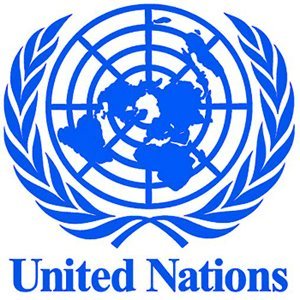Last year more than one hundred and thirteen members of the United Nations voted for a General Assembly resolution to begin talks in March of this year about a global ban on all nuclear weapons. Austria, Brazil, and Ireland were among the nations leading the call for talks about such a ban. This week, more than one hundred and thirteen U.N. members began negotiations over the proposed ban at the U.N. headquarters in New York city.
The purpose of the talks is to create "a legally binding instrument to prohibit nuclear weapons, leading towards their total elimination". Supporters of the ban hope to have a final document ready by July of this year. Any such ban would only bind the nations who signed it but supporters hope that it will help to set a precedent that will eventually lead to the elimination of nuclear weapons even in those nations which were not early signers of the new treaty.
The U.N. Secretary General opened the talks with the statement “the need for progress on nuclear disarmament has rarely been as urgent as it is today." With increasing nuclear saber rattling from Russia and North Korea, I would have to agree with the Secretary General.
Forty nuclear and non-nuclear nations have decided to boycott the talks. Opponents of the talks say that the Non-Proliferation Treaty that went into effect in 1970 has led to the gradual reduction of nuclear weapons in the world. The U.S. has reduced its nuclear arsenal by eight five percent since the height of the Cold War. The U.K. has reduced its arsenal by fifty percent during the same period.
The U.S. Ambassador to the U.N., Niki Haley, recently said that "as a mother, as a daughter there is nothing I want more than a world without nuclear weapons but we had to be realistic." Ms. Haley said the move would mean disarming nations that were “trying to keep peace and safety” while “bad actors” could continue on unchecked. She said: “North Korea would be the one cheering, and all of us and the people we represent would be the ones at risk”.
Yesterday, Army General Curtis M. Scaparrotti, head of U.S. European Command and NATO supreme allied commander spoke to the U.S. House Armed Services Committee. He said "My view is the nuclear weapons ban is just not realistic. It is occurring in a world where we have North Korea in particular who is in violation of U.N. sanctions and resolutions. Russia is also aggressively improving their modernization of their nuclear weapons." The U.S. is also "aggressively improving their modernization of their nuclear weapons." And NATO is also increasing its defense spending this year. Nations with nuclear weapons which oppose the ban include the U.S., the U.K, France, Russia, China and North Korea.
Many non-nuclear nations, led by Australia, also oppose the ban. While Australia has been officially opposing the ban talks and has been lobbying other nations to join it, polls of the Australian people show that the majority of them think that Australia should participate in the talks. The Assistant Minister to the Prime Minister told the Australian Senate "Australia shares with the international community the goal of a peaceful and secure world free of nuclear weapons, but that it would not be participating in the UN talks. This approach is consistent with Australia’s clear and long-standing position on the proposed nuclear weapons ban treaty. The proposed ban treaty would not advance nuclear disarmament. It will be ineffective in eliminating, or even reducing, nuclear weapons arsenals. It will not advance security… and it risks undermining the nuclear non-proliferation treaty by creating ambiguity and confusion through parallel obligations and by deepening divisions between nuclear and non-nuclear weapons states."
Japan has also announced that it will abstain from participating in the talks. Japanese Disarmament Ambassador Nobushige Takamizawa said "Regrettably, given the present circumstances, we must say that it would be difficult for Japan to participate … in a constructive manner and in good faith. We will continue to pursue realistic and effective disarmament measures and will work to create a security environment conducive to the elimination of nuclear weapons."
